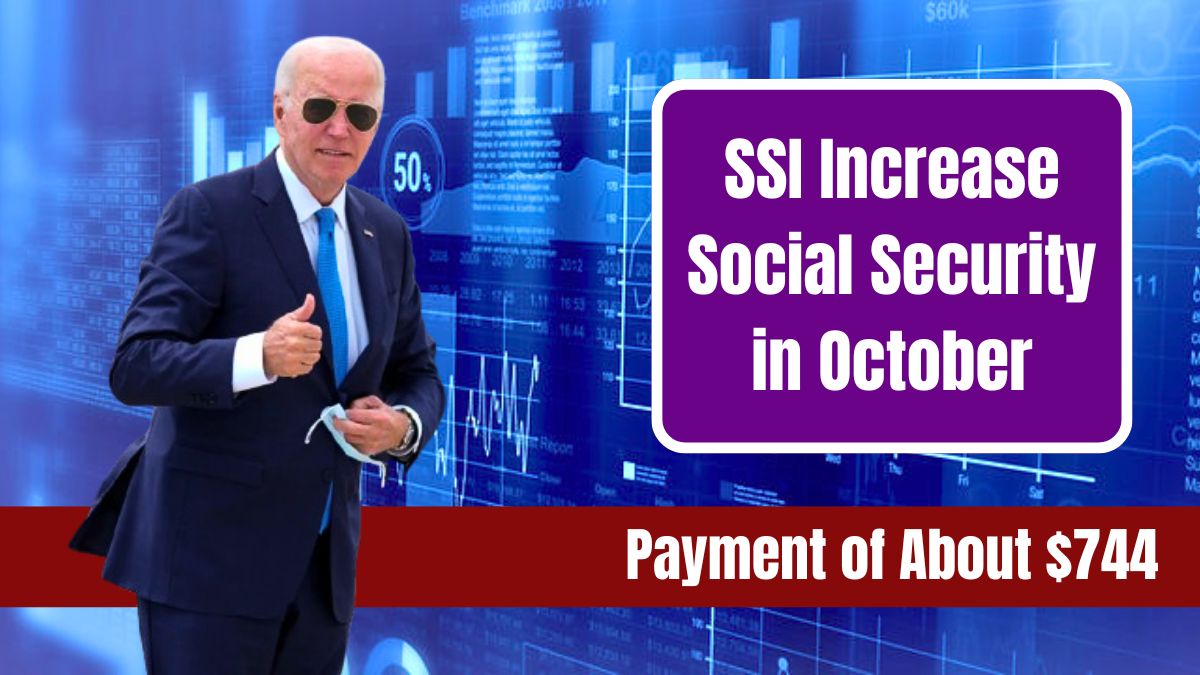The Social Security Administration (SSA) has confirmed that the next Supplemental Security Income (SSI) payment will be issued in less than 24 hours. All eligible recipients will receive their payments on the same day, but the amount of money each person gets will vary based on several factors, such as their income, whether they are receiving additional benefits like Social Security Disability Insurance (SSDI) or retirement benefits, and the total savings they have.
In this article, we’ll break down the average SSI payments for October, the exact payment schedule, and additional benefits that SSI recipients can qualify for.
Adults Aged 18-64
For SSI recipients between the ages of 18 and 64, the average payment is expected to be around $744 for October. Although this is not the largest average payment, it provides essential financial assistance to individuals with limited income and resources.
Children Under 18
Interestingly, the highest average payments go to children under the age of 18 who qualify for SSI. These younger recipients can expect to receive about $820 on average. Children are eligible for SSI if they have a physical or mental condition that meets the SSA’s definition of disability and their family’s income and resources fall below a certain threshold.
Seniors Aged 65 and Older
If you’re 65 or older, the average SSI payment is lower, averaging around $575. This lower payment is likely due to the fact that many seniors also receive Social Security retirement benefits, which reduce the overall amount of SSI they are eligible to receive. For seniors relying primarily on retirement benefits, SSI serves as a supplemental income source.
Maximum Payments
The maximum SSI payment for individuals is set at $943 per month, while married couples can receive up to $1,415 per month. These maximum benefits are reserved for those with little to no other sources of income or financial support.
SSI Payment Schedule
SSI payments are typically issued on the first day of each month. In October, the payment date will be October 1, 2024. Since October 1 falls on a weekday and is not a holiday, SSI payments will be sent out as usual on that date. If you qualify for SSI, you should expect to receive your payment either through direct deposit or by check, depending on your preference.
| Month | Payment Date |
|---|---|
| October | October 1, 2024 |
| November | November 1, 2024 |
| December | November 29, 2024 (for December) |
| January | December 31, 2024 (for January 2025) |
If the first of the month falls on a weekend or holiday, payments are usually sent on the prior business day.
Additional Benefits
SSI recipients may also qualify for other forms of assistance, helping them stretch their budget even further. Here are some common benefits available to SSI recipients:
SNAP
SSI recipients are often eligible for SNAP benefits, which help cover the cost of food. The good news is that receiving SNAP does not affect your SSI payments. This can provide much-needed financial relief, especially for families and individuals struggling to afford groceries.
Medicaid
In most cases, SSI recipients automatically qualify for Medicaid, a federal and state program that helps cover medical expenses like doctor visits, hospital stays, and prescription medications. This benefit ensures that recipients have access to essential healthcare services.
State Supplements
Some states offer their own supplemental payments in addition to the federal SSI benefit. These state supplements can vary but are a useful way to boost your monthly income without affecting your federal SSI payment.
Earned Income
SSI recipients can earn some income without losing their federal benefits. In fact, individuals can have earned income up to twice the federal benefit rate and still qualify for partial SSI payments. Only a portion of this income is counted against the SSI benefit, so many recipients can work part-time or take on occasional jobs without losing eligibility.
Unearned Income
If you live with other people who are not your spouse or parents, their income generally does not affect your SSI payment. However, deeming rules may apply if you are living with a spouse or dependent children, meaning part of their income could count against your benefit.
Temporary Assistance
SSI recipients can also apply for Temporary Assistance for Needy Families (TANF) benefits. These state-run programs provide additional financial support for low-income families, and receiving TANF will not impact your SSI eligibility.
SSI for the Homeless
SSI recipients living in public homeless shelters can continue receiving their full benefit for up to six out of nine months. This policy helps ensure that individuals experiencing homelessness can still access vital financial resources.
Regardless of your specific circumstances, SSI offers a crucial safety net for those with limited income and resources. Along with other assistance programs like SNAP and Medicaid, SSI can help recipients meet their basic needs and improve their quality of life.
FAQs
When will SSI payments be issued in October 2024?
Payments will be sent out on October 1, 2024.
Can children receive SSI payments?
Yes, children can receive SSI, with an average payment of about $820.
What is the maximum SSI payment?
The maximum benefit is $943 for individuals and $1,415 for couples.
Will my SSI payment change if I receive other benefits?
Yes, SSI payments may be reduced if you receive SSDI or retirement benefits.
Does earned income affect my SSI eligibility?
Yes, but only a portion of your earned income counts against your SSI benefit.











